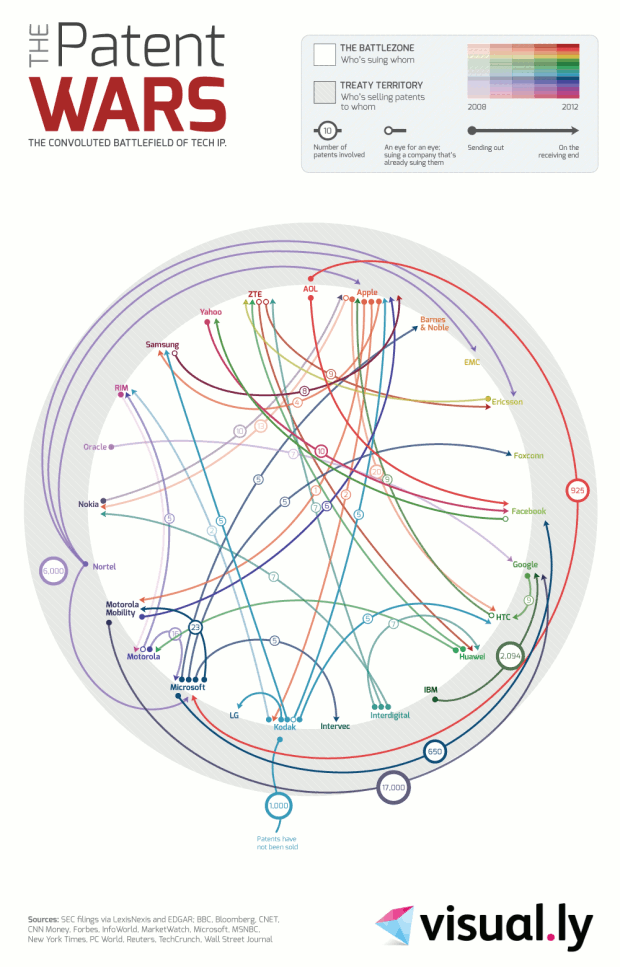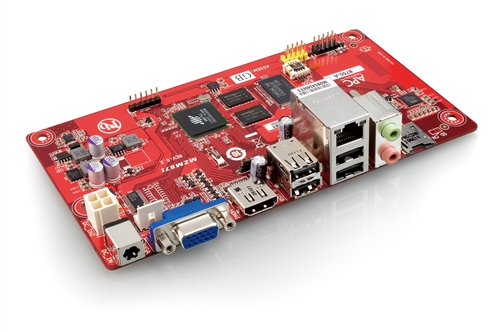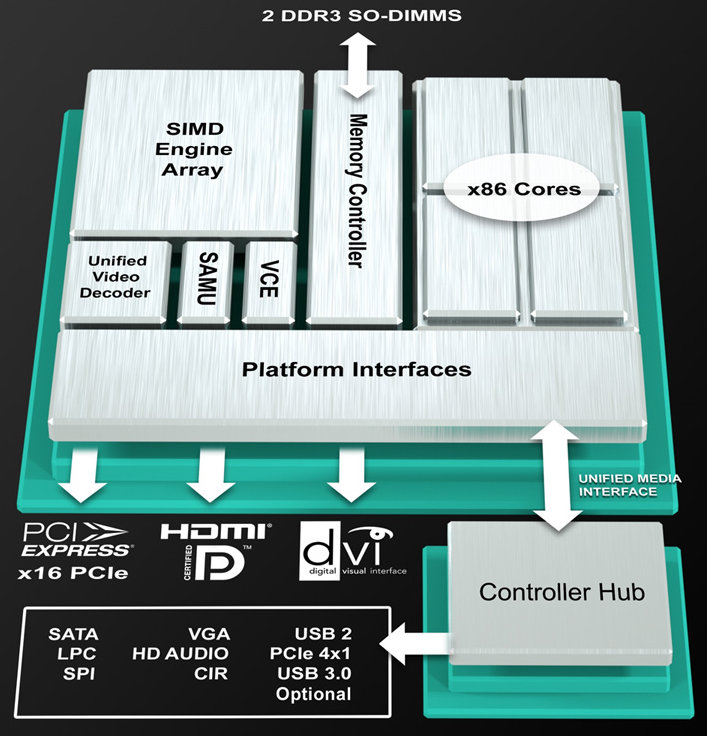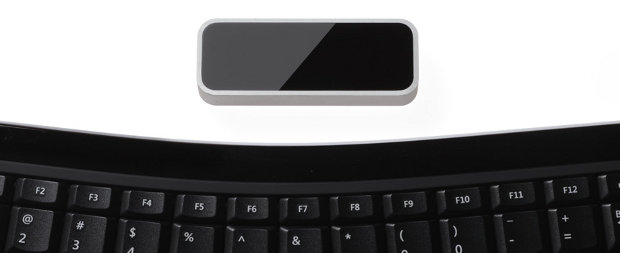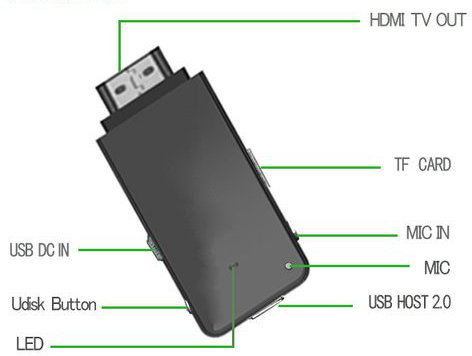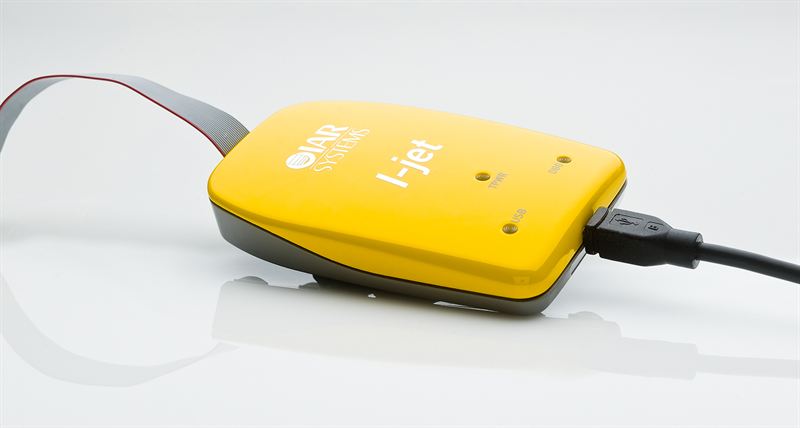You may have heard of patent fights between Samsung and Apple with ensuing delays in product launches, or even the recent Oracle vs Google patent fight. Visual.ly has created an infographic about the rampant patent wars in the US Tech Industry which shows just how messy patent fights in US courts are. This must really be a boon for lawyers. The external ring of the chart shows the alliances or patent purchases between companies. The busiest companies on the patent war front seem to be Apple, ZTE and Microsoft. Google is by far the company who bought the most existing patents mainly from Motorola Mobility (17,000 patents) and IBM (2,094 patents). Via visually. Jean-Luc Aufranc (CNXSoft)Jean-Luc started CNX Software in 2010 as a part-time endeavor, before quitting his job as a software engineering manager, and starting to write daily news, and reviews full time later in 2011. www.cnx-software.com
VIA Technologies Unveils the APC, an ARM11 $49 Android PC
VIA Technologies has today introduced the Android PC system (APC) powered by WonderMedia ARM11 processor, with 512 MB RAM and 2MB Flash in a small Neo-ITX motherboard and that will sell for a mere 49 USD, slightly higher than the 35 USD Raspberry Pi. But whereas the Raspberry Pi would struggle to run Android with 256 MB, the APC has just enough memory top run Android 2.3 and Android 4.0. Another advantage is the presence of a VGA connector which is missing on the Raspberry Pi, as well as a few other connectors. Here are VIA APC hardware specifications: VIA WonderMedia 8750 ARM11 CPU@ 800 MHz 2GB NAND Flash 512 DDR3 SDRAM Hardware Video Decoder supporting up to 1080p resolution VGA and HDMI display ports 4x USB 2.0 ports microSD slot 10/100 Ethernet port Audio-out/ Mic-in 15W power adapter Power consumption: 4 Watts (Idle) 13.5 Watts (Max. load) Dimensions: 17cm […]
AMD Launches AMD Embedded R-Series APU Platform
AMD has launched their AMD Embedded R-Series accelerated processing unit (APU) platform designed for mid- to high-end graphics-intensive applications such as digital signage, casino gaming, point-of-sale systems and kiosks, as well as parallel processing applications such as medical imaging and security/surveillance thanks to OpenCL and DirectCompute support. The AMD Embedded R-Series APU combines the “Piledriver” CPU architecture with an AMD Radeon 7000 Series GPU. There are 8 AMD R-Series APUs, 4 in PGA package and 4 in BGA package: R-464L – Quad Core APU @ 2.3/3.2 GHz with Radeon HD 7660G. TDP: 35W (PGA) R-460H – Quad Core APU @ 1.9/2.8 GHz with Radeon HD 7640G. TDP: 35W (PGA) R-272F – Dual Core APU @ 2.7/3.2 GHz with Radeon HD 7520G. TDP: 35W (PGA) R-268D – Dual Core APU @ 3.0/2.5 GHz with Radeon HD 7420G. TDP: 35W (PGA) R-460L – Quad Core APU @ 2.0/2.8 GHz with Radeon HD 7620G. […]
Leap Motion Lets You Control Your Computer With Finger Gestures
Leap Motion is a tiny USB device, about the size of a thumb drive, that let’s you control your computer with hands and fingers (and even pencils) gestures in three dimensions using motion sensing and motion control technology. The company claims that Leap technology is 200 times more accurate than existing solutions with an accuracy up to 0.01 millimeter (which seems over the top). To use the LEAP, simply plug it into a USB port, install Leap Motion software, calibrate the device and you’re ready to control your PC a la minority report. This technology will probably not displace the mouse and keyboard, as your arms would get very tired after a while, but there are some good use cases: Stylus emulation and 3D images creation. Gaming. 3D modeling software interaction. Sign a document digitally with a pen. User interaction in Windows 7/8 or Mac OS X: Clicking, grabbing, scrolling, […]
Droid Stick KVD-13 Another Low Cost Android mini-PC
Following the steps of the $74 Android 4.0 mini PC (MK802), a couple more ARM based mini PCs have shown up, including Shenzhen Kimdecent Technology Droid Stick KVD-13 powered by a Renesas processor based on Cortex A9 with a PowerVR SGX530 GPU (possibly Renesas NEC EV2 processor), featuring 512 MB RAM, 4GB Flash and running Android 2.3. The good thing with this mini PC is that the HDMI connector is of the right gender: male. No offense to HDMI female connectors ;), but for this type of device, it’s just neat to plug it directly into the TV/monitor HDMI connector. Here are the device specifications: CPU Renesas Cortex-A9 Dual Core Processor @ 1GHz with PowerVG SGX530 GPU System Memory 512MB DDR3 Storage 4GB NAND Flash microSD card Connectivity WiFi 802.11b/g/n USB Ports 1x USB 2.0 Host 1x mini USB (for power) Video Output 1x HDMI 1.4 (Up to 1080p) Video Codecs […]
IAR Systems I-jet Hardware Debugging Probe Is Now Available
IAR Systems has announced the availability of I-jet, a new in-circuit debugging probe that can be used in conjunction with Embedded Workbench for ARM, IAR C/C++ compiler and debugger tool suite. I-jet provides download speeds of up to 1 MB per second, JTAG and Serial Wire Debug (SWD) clocking at up to 32 MHz (no limit on the MCU clock speed), and Serial Wire Output (SWO) frequencies of up to 60 MHz. I-jet probe is powered by USB and can also power the target board (Up to 400mA) and measure the power consumption accuratly (200 uA @ 200khz). The probe is plug-and-play, and supports automatic core recognition, and direct download into the flash memory. I-Jet supports ARM7, ARM9, ARM11, ARM Cortex-M, ARM Cortex-R4, and ARM Cortex-A5/A8/A9 cores. Serial Wire Viewer (SWV), Embedded Trace Buffer (ETB) and JTAG adaptive clocking are supported and all JTAG signals can be monitored. The probe […]
Linux 3.4 Release
Linus Torvalds has just announced the release of Linux Kernel 3.4 on the 20th of May: I just pushed out the 3.4 release. Nothing really exciting happened since -rc7, although the workaround for a linker bug on x86 is larger than I’d have liked at this stage, and sticks out like a sore thumb in the diffstat. That said, it’s not like even that patch was really all that scary. In fact, I think the 3.4 release cycle as a whole has been fairly calm. Sure, I always wish for the -rc’s to calm down more quickly than they ever seem to do, but I think on the whole we didn’t have any big disruptive events, which is just how I like it. Let’s hope the 3.5 merge window is a calm one too. Linus Linux 3.3 merged Android drivers to mainline, added further improvements to btrfs and ext-4 file […]
25 USD Hacker Friendly Electric Imp “WiFi-ises” Your Coffee Machine
Electric Imp is a device in an SD card form factor that aims at providing Wi-Fi connectivity to household appliances at low cost and bringing the Internet of Things (IoT) closer to reality. The Imp will also connect to a Cloud service handled by the company (which is also called Electric Imp). The device Wi-Fi connection can easily be configured using an iOS or Android smartphone thanks to BlinkUp, a patent-pending scheme supporting WEP, WPA and WPA2 encryption schemes as well as WPS setup. Electric Imp developers expect this device to save resources (e.g. electricity) by taking into account environmental conditions (e.g. occupancy, temperature..), improve security & safety and overall provide better monitoring and control of devices. For example, this could enable support services to remotely diagnose a device, and provide timely customer support. Here are the Electric Imp hardware specifications: ST Micro STM32 Cortex M3 MCU 802.11b/g/n WiFi 6 […]


